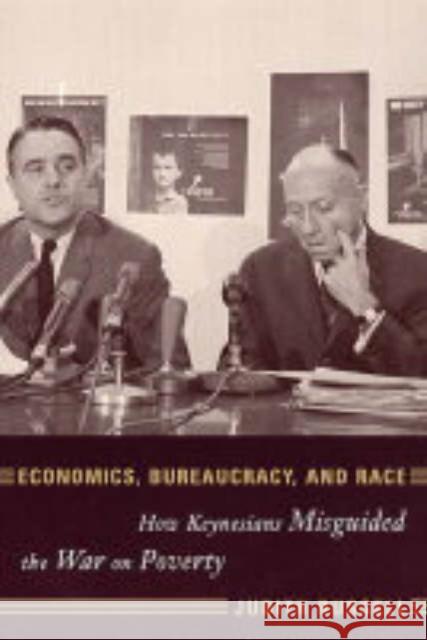Economics, Bureaucracy, and Race: How Keynesians Misguided the War on Poverty » książka
topmenu
Economics, Bureaucracy, and Race: How Keynesians Misguided the War on Poverty
ISBN-13: 9780231112536 / Angielski / Miękka / 2003 / 304 str.
In this hard-hitting analysis of the war on poverty, Judith Russell charges that since FDR's New Deal, the U.S. government has introduced many public policies attempting to address poverty, yet it has failed to produce coherent programs to combat it. Focusing on the genesis of the Economic Opportunity Act of 1964, the core of Presidents Kennedy and Johnson's antipoverty crusade, Russell asserts that the war on poverty could have been an inclusive policy of government-sponsored jobs programs, but it failed to confront the deep-rooted problems endemic to American poverty.
While the macroeconomic strategies devised by the Keynesian Council of Economic Advisors in 1963 and 1964 eventually rejected proposed jobs programs to combat unemployment, Russell argues that this was the wrong strategy for fighting the structural unemployment at the center of hard-core poverty. At the same time, liberal policymakers ignored direct calls for jobs programs emanating from black Americans who were disproportionately affected by structural unemployment. Without these programs at the center of the war on poverty, it was doomed to fail. Drawing on a plethora of archival sources, including the Kennedy and Johnson Presidential Libraries, and interviews and a ten-year correspondence with former Secretary of Labor W. Willard Wirtz, this forceful examination brings a fresh perspective to a key era in American economic policymaking and to contemporary policy debates.










